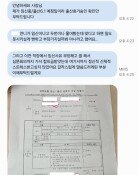[Opinion] Recording History
A few years ago, a local city of Korea suggested establishing sisterhood ties with Mumbai, India. Mumbai replied, We already have the relationship with your city. What are you talking about? Mumbai had relevant records while we had noneand we were embarrassed. We deplore that Korea does not have a record-keeping culture. To be exact, it has become extinct.
Among the 90 world heritage sites designated by UNESCO, we have four, including the Joseon Wangjo Shillok (dynastical records) and Seung Jung Won Ilgi. Scholars of all nationalities are unsparing in their praise of the Joseon Dynastys archives. The Joseon Wangjo Shillok conveys freshly and verbatim what kinds of debates ancient kings and their vassals had. Since then however, the tradition of recording culture has disappeared due to the confusions incurred by colonial rule and the Korean War. Ensuing authoritarian military dictatorship and unstable politics caused a huge gap in administration historical records, too.
With their retirement, many presidents took along important records as well. They probably wanted to hide unjust exercises of power and blunders. Naturally, their followers were even worse. Rulers and officials, by nature, are reluctant to leave records behind. When he was in office, former President Kim Dae-jung enacted a law making the preservation of administration historical records mandatory, but he himself was suspected of not revealing some records.
The side effects of the general societys absence of a recording culture are huge as well. The past injustices issue, to illustrate, shows that the liberals built up records and data to buttress their ideology for a long time, while the conservatives were considerably fragile in their rebuttal. This is the reason the conservatives lagged in the logical feud. The Korean War generation should not just reproach the young that they do not know about socialism and war, but leave their experiences then in the form of detailed records. Only then will the balance of the truth will be found.
The government has embarked on a plan to build a new national archives system. For a responsible administration, which can learn much about history to realize itself, it is important to materialize the idea into practice. As much as the future recording culture should be established, we should also turn our eyes to historical records and stop the history passing before us from becoming biased.
Hong Chan-shik, Editorial writer, chansik@donga.com
Headline News
- N. Korea launches cyberattacks on S. Korea's defense companies
- Major university hospital professors consider a day off each week
- Italy suffers from fiscal deficits from ‘Super Bonus’ scheme
- Inter Milan secures 20th Serie A title, surpassing AC Milan
- Ruling and opposition prioritize spending amid tax revenue shortfalls







